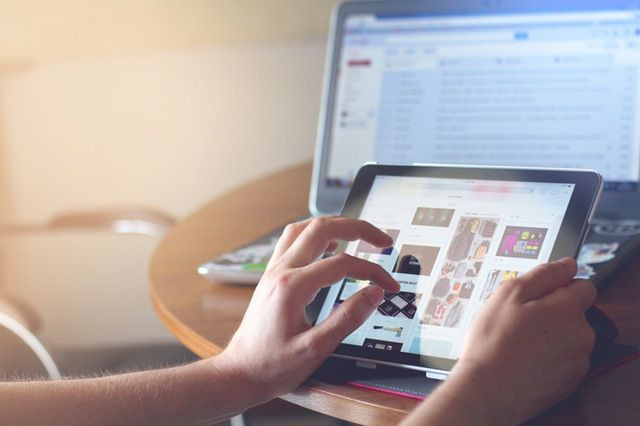Top 11 Social Networks Linked To Higher Risk Of Depression And Anxiety: Is Social Media Bad For Your Health?

Many of us use social media to stay in touch with others, stay up-to-date with news and current events, and to fill up our spare time with funny and entertaining content. As social media users, we tend to passively network, or consume content, rather than actively contribute to the "stories." Now, a recent study in Computers in Human Behavior suggests using numerous social media sites can significantly increase the risk of depression and anxiety.
“This association is strong enough that clinicians could consider asking their patients with depression and anxiety about multiple platform use and counseling them that this use may be related to their symptoms,” said Brian A. Primack, lead author of the study, a physician director of University of Pittsburgh Center for Research on Media, Technology and Health, and the assistant vice chancellor for health and society in Schools of the Health Sciences, in a statement.
Read More: The Adverse Effects Of Social Media
Primack and his research team found using seven out of the 11 most popular social media platforms — including Facebook, YouTube, Twitter, Google Plus, Instagram, Snapchat, Reddit, Tumblr, Pinterest, Vine, and LinkedIn — was associated with three times the risk of depression and anxiety than those who use zero to two platforms, even after they adjusted for total time spent on these sites.
The researchers admit it's unclear whether depressed and anxious people seek out multiple media outlets, or whether using multiple outlets what leads to these mental health issues. For example, a social media user on several sites could be looking for a platform that feels comfortable and accepting. Or, Primack suggests, "it could also be that trying to maintain a presence on multiple platforms may actually lead to depression and anxiety."
With the latter, multitasking, such as switching between platforms, could cost users their mental health. Previous research conducted at Stanford University found multitasking is less productive than doing a single thing at a time. Moreover, people who receive multiple streams of electronic information, like notifications, tend to not pay attention, recall information, or switch from one task to another as well as those who handle one thing at a time.
The unwritten rules, cultural assumptions, and idiosyncrasies of each social media site can make it increasingly difficult to navigate when the number of platforms used rises, according to the researchers. This could lead to negative mood and emotions. There’s also more opportunity to commit a social media mistake, which can lead to repeated embarrassments. This mental stress could impair cognitive health.
“Understanding the way people are using multiple social media platforms and their experiences within those platforms—as well as the specific type of depression and anxiety that social media users experience—are critical next steps,” said César G. Escobar-Viera, coauthor of the study, a psychiatrist, and a postdoctoral research associate at the University of Pittsburgh’s Health Policy Institute and at CRMTH, in a statement.
The mental health of over 1,700 US adults ages 19 through 32, was assessed via an established depression assessment tool and questionnaires to determine social media use.
Read More: The Teenage Brain On Social Media
Facebook And Depression
Several studies have made a distinct connection between depression and social media use on specific sites. Ironically, Facebook, known as the "social" network, has been linked to a multitude of mental health issues, like depression and low self-esteem. A 2015 study found those who heavily use Facebook tend to have more depressive symptoms, which are often brought on by social comparison. This refers to making comparisons, often between our most dull moments and our friends “highlight reels”, such as the images we see from a vacation.
This doesn’t mean Facebook causes depression, but the depressed feelings and time spent on Facebook, and comparing ourselves to others tend to be connected.
Using Social Media To Detect Depression
Social media is also popularly used as a tool to talk about our emotions.
A study from the University of Vermont found people on Twitter have been growing more and more unhappy over the past years. Users have logged on the site to tweet about unhappy things. This suggests people who are depressed, may visit Twitter to seek comfort they’re not alone, or using Twitter could make them more prone to depression.
Similarly, instagram posts have been found to be correlated with depression. In August, a study found Instagram users who were depressed tended to post photos with increased hue, decreased brightness, and decreased color saturation. Overall, their photos were "bluer, grayer, and darker." They tended to post frequently, and use more Instagram filters, with the most popular one for depressed participants being Inkwell, which turns a photo black and white. The most popular filter for volunteers who weren't depressed was Valencia.
Social media may be used as a diagnostic tool for early screenings of depression, even before a doctor’s visit.
Social Media And Mental Health: The Verdict
The impact of social media usage on mental health is evident - it can help and hurt mental health. The effect of social networks on our lives is contingent on how often we use, and most importantly why we use it. In the digital age, it seems our happiness and social validation is dependent on whether we get a “like” or “retweet” from those we idolize.
At the end of the day, technology may be controlling us more than we like to think.
Source: Primack BA, Shensa A, Escobar-Viera CG et al. Use of multiple social media platforms and symptoms of depression and anxiety: A nationally-representative study among U.S. young adults. Computers in Human Behavior . 2016.
See Also:
Facebook Is Ruining Your Mental Health In More Ways Than One
Published by Medicaldaily.com



























